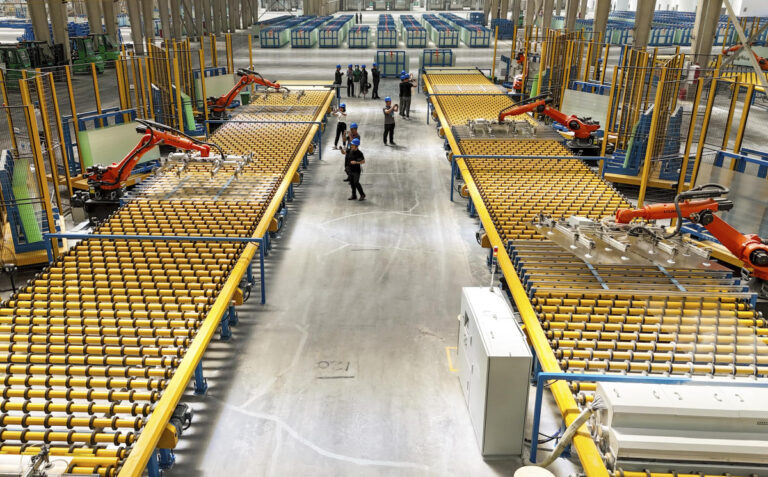China’s factory activity slowed more than expected in May, according to an official survey released on Friday, suggesting further pressure on an economy already burdened by a prolonged crisis in the property sector.
The manufacturing purchasing managers’ index released by the China Logistics Purchasing Federation, on a scale of 100 with 50 indicating the dividing line between expansion and contraction, fell to 49.5 from 50.4 in April.
The main reason for the slowdown is a decline in production, with declines in new and export orders pointing to weaker demand.
Analysts had expected the manufacturing PMI to be just above 50, or still in expansion territory, after the economy grew a better-than-expected 5.3% annualized in the first quarter of this year.
But uncertainty over access to the U.S. market has grown as both President Joe Biden and his re-election rival, former President Donald Trump, have increasingly backed maintaining or increasing tough tariffs on Chinese imports.
“While the latter (new orders and export orders) may signal a near-term slowdown in exports, it more likely reflects the emotional impact of Biden’s new tariffs,” Huang Zijun of Capital Economics said in a report.
China recently relaxed down-payment requirements for some mortgages and lowered minimum interest rates as part of efforts to stabilize the housing market. Home prices have fallen, construction has stagnated and dozens of developers have defaulted on loans since the government cracked down on excessive borrowing several years ago.
A survey on Friday showed construction slowing slightly.
Most of Chinese households’ personal wealth is invested in property, and the market has been hit hard by the prolonged recession. Job losses due to the pandemic and tighter regulations on technology businesses have also hit spending.
Many economists say long-term reforms are needed to boost consumer confidence and sustain long-term growth. Earlier this week, the International Monetary Fund raised its forecast for China’s economic growth this year to 5 percent but warned that more work is needed to shift the economy away from a reliance on exports and construction investment as the country’s population ages.
“We expect stronger fiscal support and new real estate stimulus measures to spur a new recovery in the coming months, but this may not last long given the structural challenges facing the economy,” Huang said.

